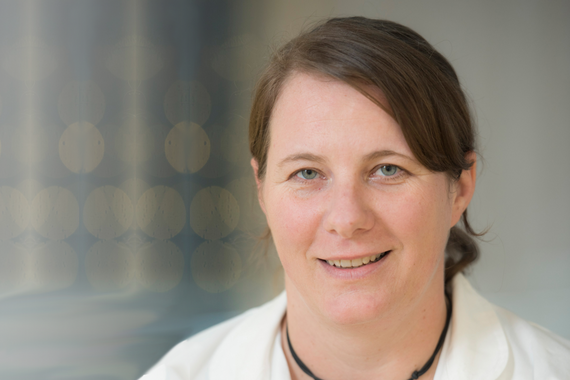- The University
- Studying
-
Research
- Profile
- Infrastructure
- Cooperations
- Services
-
Career
- Med Uni Graz as an Employer
- Educational Opportunities
- Work Environment
- Job openings
-
Diagnostics
- Patients
- Referring physicians
-
Health Topics
- Health Infrastructure
Research focus Heitzer
Research focus: Precision Medicine
PI: Ellen Heitzer
Focus: Personalized medicine is the practice of clinical decision-making that maximizes the outcomes that the patient cares about most while minimizing those that the patient fears the most, based on all available knowledge of the individual’s state (Pauker and Kassirer N Engl J Med, 1987). Precision medicine, which has become a clinical reality due to our increasing biological knowledge in health and disease, combines the goals of personalized medicine with the information of an individual’s genes or proteins to prevent, diagnose, or treat disease. In cancer, precision medicine promises to radically individualize patient care by preventing disease, improving survival and extending health span.
Network: We have experienced clinical partners various types of solid tumors at the Division of Oncology, the Department of Gynecology as and the Department of Urology. Moreover, we are closlely working with the Departments of Hematology, Pediatric Haematology/Oncology and Orthopedic in the context of hematological diseases and sarcoma. In addition we have a longstanding collaboration with the Institute of Pathology at the MUG or the Department of Pathology, at the LKH II. Moreover, we collaborate with oncologists at the LKH Fürstenfeld and LKH Hochsteiermark.
Projects
Translation of NGS results into treatment options for patients with cancer
- Detailed molecular information obtained from next-generation sequencing (NGS) can be harnessed to inform treatment decisions. The analysis of circulating tumor DNA (ctDNA) serves as an innovative approach to capturing the most current alterations in a patient’s tumor. Our lab is evaluating and optimizing ways to translate complex NGS datasets obtained from ctDNA to support precision oncology and disease follow-up approaches. As oncologists are frequently confronted with the challenge of patients with progressive disease, we have established a ctDNA molecular profiling service to deliver actionable insight back to clinicians in real-time. We provide an end-to-end service from sample processing, to interpretation, to treatment matching through our molecular and clinical genetics expertise.
- Duration: ongoing
- Funded by: Med Uni Graz
- Project partners: Division of Oncology, Department of Internal Medicine, Medical University of Graz, D&R Institute of Pathology, Medical University of Graz
Liquid Biopsy to accelerate the delivery of precision medicine
- We seek to overcome the heterogeneity bottleneck of tumor tissue analysis through the profiling of tumor genomes from cell-free DNA (cfDNA), which in patients with cancer contains circulating tumor DNA (ctDNA). In order to assess the clinical utility of circulating tumor DNA (ctDNA) as a marker for therapy response and prognosis, we have several ongoing projects on solid tumors such as breast, ovarian, colorectal or prostate cancer. Here, we aim to non-invasively characterize advanced tumors with a combination of high coverage whole genome sequencing, nucleosome positioning mapping, and high-resolution panel sequencing, in order to contribute to the identification of novel driver genes and to identify novel predictive and prognostic biomarkers that might guide treatment decisions.
- Duration: ongoing
- Funded by: FWF
- Project partners: Division of Oncology, Department of Internal Medicine, Medical University of Graz, D&R Institute of Pathology, Medical University of Graz, Institute of Mathematics and Scientific Computing, Karl-Franzens-University of Graz,Institute for Medical Informatics, Statistics and Documentation, Medical University of Graz, CeMM: Research Center for Molecular Medicine of the Austrian Academy of Sciences, CANCER-ID/ELBS consortium, Lawrence J. Ellison Institute for Transformative Medicine of USC, USC Westside Cancer Center, University of Southern California, USA, Department of obstetrics and gynecology, LKH-Univ.Klinikum Graz, Department of obstetrics and gynecology, LKH Hochsteiermark, Leoben, Department of obstetrics and gynecology, Hospital of St. John of God, Graz Marschallgasse
Circulating tumor DNA (ctDNA) as a predictive marker for response evaluation
- Response evaluation for cancer treatment currently consists of clinical and radiological assessments. Recently we and other demonstrated that changes in circulating tumor DNA (ctDNA) correlate well with tumor burden. Through recent technological advances it is now possible to also detect and quantify minute amounts of tumor-specific DNA in blood plasma. Here we investigate whether changing tumor levels indicate treatment response in various cohort. For example, in collaboration with of the Austrian Breast and Colorectal Study Group (ABCSG) we analyze a set of localized breast cancer patients under neoadjuvant treatment. In another project we test whether changing levels of ctDNA are an early predictor of treatment response to immune checkpoint inhibitor in non-small cell lung cancer.
- Duration: 2016-2021
- Funded by: Austria National Bank fund (Project No. 16917), Christian Doppler Research Laboratory for Liquid Biopsies for Early Detection of Cancer funded by the Austrian Federal Ministry for Digital and Economic Affairs, Cancer-ID
- Project partners: Austrian Breast and Colorectal Study group (ABCSG), Anders Ståhlberg, Sahlgrenska Cancer Center, University of Gothenburg, Cancer-ID consortium, Harry Groen and Ed Schuuring, University Medical Center Groningen (UMCG), Netherlands
Diagnostic and Research Institute of Human Genetics
Assoz. Prof.in Priv.-Doz.in Mag.a Dr.in
Ellen Heitzer
Ellen Heitzer
T: +43 316 385 73819



